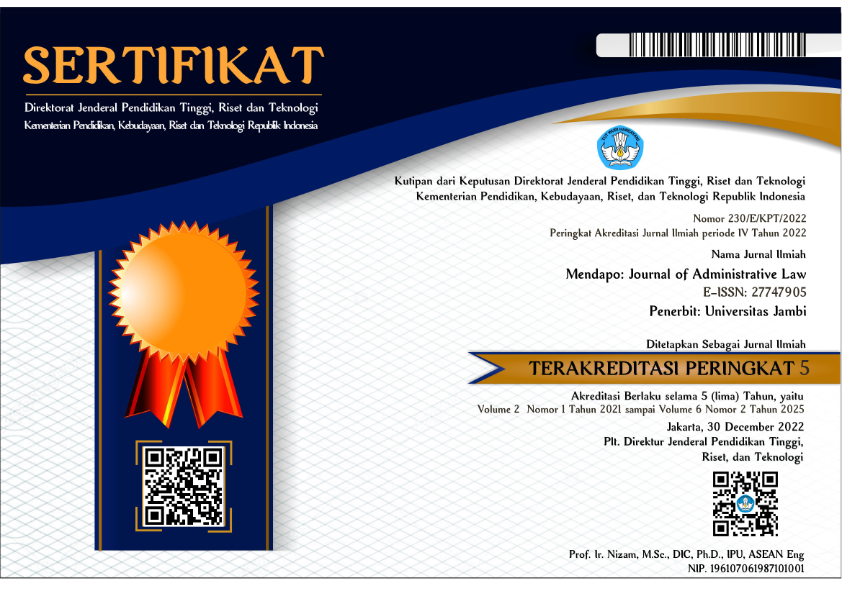A Comparative Study of Employment Policies for Persons with Disabilities in Three Countries
Studi Komparatif Kebijakan Ketenagakerjaan bagi Penyandang Disabilitas di Tiga Negara
DOI:
https://doi.org/10.22437/mendapo.v6i2.43975Keywords:
Disability, Employment, Comparative StudyAbstract
This study explores the effectiveness of employment access policy models for persons with disabilities in Indonesia, Singapore, and Germany, with the objective of ensuring equal rights and opportunities comparable to those of other citizens. Employing a juridical-comparative methodology, the research examines each country's legal framework, implementation strategies, and practical challenges. Indonesia adopts a mandatory employment quota system as stipulated in Law Number 8 of 2016 on Persons with Disabilities; however, its application across various employment sectors remains limited and faces notable challenges. In contrast, Singapore employs a non-mandatory, inclusive approach supported by incentive-based programs, while Germany enforces a larger quota system complemented by stringent sanctions and comprehensive rehabilitation services. The findings indicate that the effectiveness of these policies is significantly influenced by state commitment, consistent legal enforcement, supervisory mechanisms, policy evaluation, and the development of an inclusive work environment. The study recommends that Indonesia strengthen its policy by imposing clear sanctions, enhancing oversight mechanisms, and integrating incentives to improve education and vocational skills for persons with disabilities, thereby contributing to the overall improvement of their quality of life.
Downloads
Published
How to Cite
Issue
Section
License
Copyright (c) 2025 Eliana Denggan Trianita Lumban Raja, Pratama Herry Herlambang

This work is licensed under a Creative Commons Attribution 4.0 International License.












